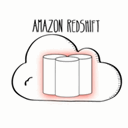Top EventQL Alternatives for Large-Scale Event Analytics
EventQL is a powerful, distributed, column-oriented database specifically designed for handling massive event collection and analytics, renowned for its super-fast SQL and JavaScript query capabilities. While EventQL excels in its niche, organizations often seek EventQL alternative solutions that align with their specific infrastructure, budget, or feature requirements. Whether you're looking for broader ecosystem integration, different pricing models, or specialized analytical tools, there are several compelling options available in the market.
Top EventQL Alternatives
When searching for an EventQL alternative, businesses are typically looking for scalable, performant, and cost-effective solutions for their big data analytics needs. Here are some of the leading contenders that offer robust capabilities for event data warehousing and business intelligence.

Google BigQuery
Google BigQuery is a serverless, highly scalable, and cost-effective enterprise data warehouse designed for business agility. As a commercial web-based platform, BigQuery allows you to run SQL-like queries against petabytes of data in seconds, without any setup or administration overhead. It's an excellent EventQL alternative for those seeking robust business intelligence, database, and developer tools, making it ideal for large-scale data analytics and relational database functionalities.

Amazon Redshift
Amazon Redshift is a fully managed, petabyte-scale data warehouse service that makes it simple and cost-effective to analyze all your data using standard SQL. This commercial web-based platform is a strong EventQL alternative, offering fast performance and scalability for complex analytical workloads. Its features include comprehensive business intelligence, database, developer tools, and relational database capabilities, making it a powerful choice for organizations heavily invested in the AWS ecosystem or looking for a managed data warehousing solution.
Choosing the right EventQL alternative depends on your specific operational requirements, budget, existing infrastructure, and desired level of management. Each option presented offers unique strengths in terms of scalability, performance, and feature sets, enabling you to select the best fit for your large-scale event collection and analytics needs.